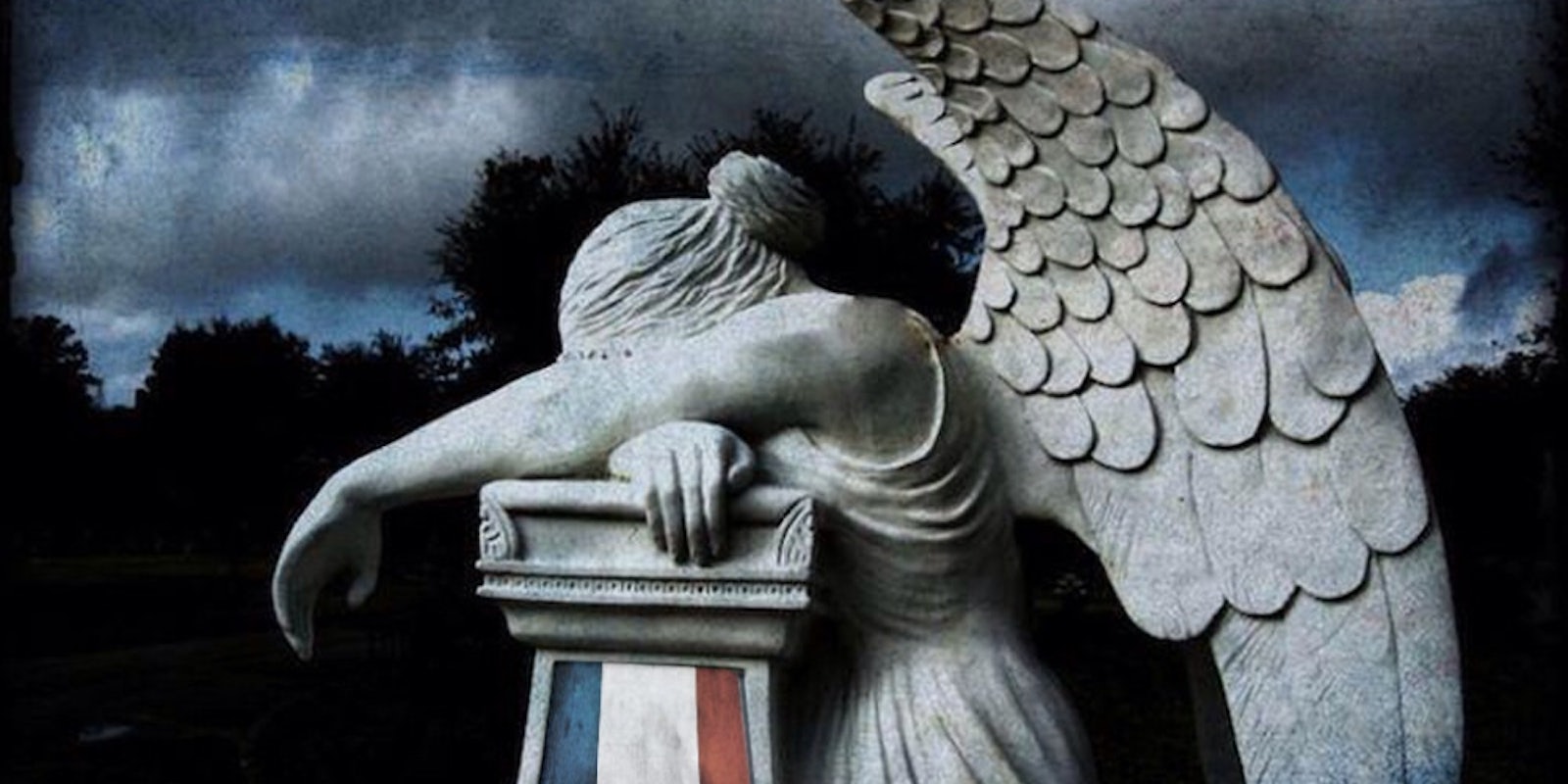The attacks this week in Paris on Charlie Hebdo, a biting French satirical magazine, were an attack on artists and journalists, not only the ones who actually got killed or injured, but any such person around the world who’s engaged in a sincere pursuit of truth. The action bears a particular heinousness in that its targets were satirical in nature, and therefore interested in spreading stimulation and laughter. Comedy being met with violence would itself be a topic worthy of satire, were the shock not so ugly and fresh.
But meanwhile, here’s the difficult truth: If comedy is to be of any value, then it must be dangerous.
This of course does not mean that comedy must incite violence, nor any tangible threat to the comedian. What it does mean is that for comedy to hit its sweet target—those parts of the brain responsible for generating laughter—then it must in some way ruffle, challenge, or upset the established order of things. For the thinking person tends to understand that there is no established order of things. Reality is in flux, unfixed. The perceived established order of things changes every second. Comedy, when it is incisive, therefore exposes what most everyone already knows is there: the confused, ridiculous, chaotic, and paradoxical truths beneath the ongoing, often banal facade of stability.
It doesn’t matter whether comedy is high or low; it can still be dangerous. Dropping one’s pants may reveal a lower truth than drawing a cartoon satirizing a religious institution, but in both cases the underlying spirit is identical as the illusion of solidity makes way for the reality of instability. Pants allow us to suppress our awareness of our bodily functions. Religion allows us to feel comfort in the face of eternal mysteries. The comedian’s job is to alleviate the dishonesty of suppression and front-load the discomfort of life’s utter strangeness.
The comedian is therefore essential (particularly in her more elevated form, as the satirist).
Needless to say, however, not everyone’s always in on the joke. Therein lies the danger: To draw humor from reality is to express a point of view, and to express a point of view is to inevitably happen upon others with conflicting perspectives. In civilized society, this leads to disagreement and perhaps debate. Perhaps it simply leads to one unsmiling face amid the darkness of the comedian’s audience.
But at times, we know, it unleashes another darkness.
Science hasn’t yet nailed down the mechanics of human laughter. What we have learned is that prior to laughing at a joke, we must achieve comprehension of the joke’s meaning. This occurs right behind the skull matter of our foreheads, in our frontal lobes. Once the recipient achieves understanding, signals fire upward, toward the top of the head, where movement is controlled in the motor cortex. When the signals touch down, we proceed to laugh.
Studying this process, three things become clear: a joke may never be understood to begin with; a joke may be understood but not lead to laughter; or, in the comedian’s ideal scenario, the joke makes its way about the whole of the brain’s laughter circuitry, being understood as well as laughed at.
At the offices of Charlie Hebdo, the shooters either never got the joke to begin with, or, more likely, got it but did not find it funny. They stormed in and killed two police officers and ten staff members, among them four of the publication’s founding members.
What was the joke? It’s a little hard to know exactly. In recent issues, Charlie Hebdo poked fun at ISIS and the Islamic State. A recent tweet makes a mockery of ISIS leader Abu Bakr al-Baghdadi. Its latest issue presents a garish caricature of author Michel Houellebecq, whose new novel, Submission, foresees a future wherein France finds itself overtaken by Muslims.
So the precise form of ammunition (for lack of a better word) that spurred the act of terrorism is unclear. Ultimately, however, it doesn’t matter. The nature of the inciting joke or jokes needn’t be picked apart, much less subject to a speck of analysis. For the prevailing reality is that it was a joke. As Stéphane Charbonnier, the paper’s editor and one of those killed on Wednesday, said in 2012, “When activists need a pretext to justify their violence, they always find it.”
Charlie Hebdo doesn’t exist for the sake of mocking Muslims; like any good and dutiful source of satire, it functions with an equal opportunity mindset. Anybody’s fair game. No topic’s off limits.
Just the same, there remain those whose motor cortexes never get hit: unsmiling absolutists who prefer to keep life’s mysteries veiled by cloth. Their refusal to laugh, or to even understand the joke in the first place, stems from a dreadful aversion to uncertainty. However, as many times as they pull the trigger, they cannot slay wit, irony, observation, sarcasm, mockery, absurdity, frivolity, or critical thought.
And to be sure, much as they try, they cannot slay uncertainty. They can kill the comedians, and in so doing inflict a shattering and permanent critique upon people of intellect and talent, but they cannot kill the joke.
Call me hopeful, but I don’t expect the joke to ever die.
This post originally appeared on the Good Men Project and has been reprinted with permission.
Photo via Michael Craig/Flickr (CC BY-SA 2.0)


